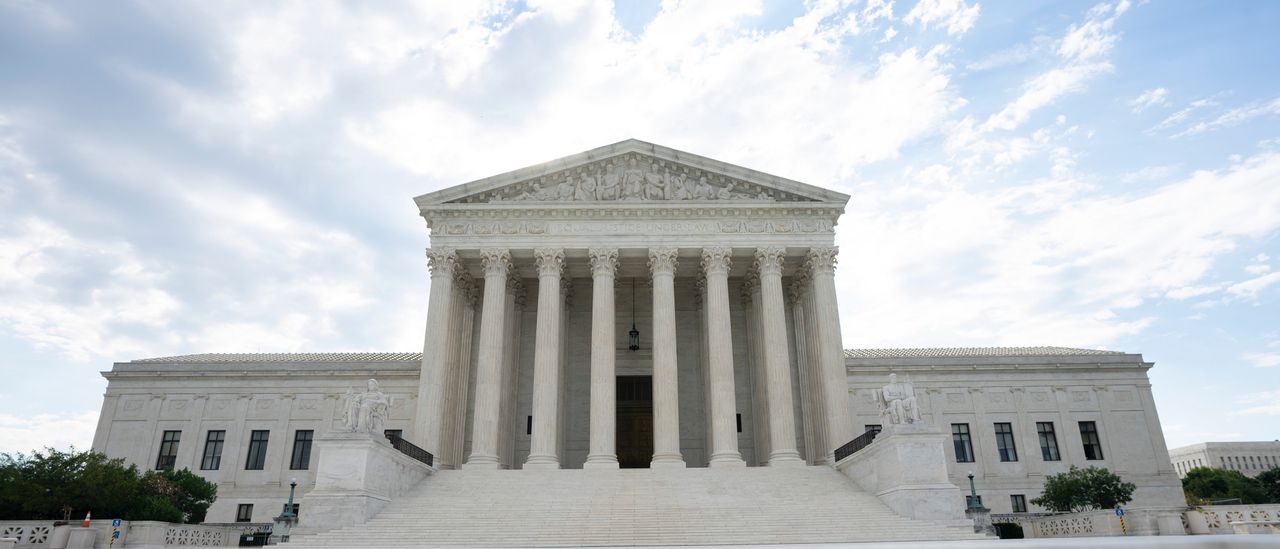Yesterday Mike Huckabee noted that Chief Justice of the Supreme Court John Roberts joined the far-left members of the High Court. Again.
This time it has to do with the rights of a Calvary Chapel Church.
Some feel the Supreme Court needs to be put back in their proper lane---The one our Founders carefully defined.
A closer look.
Be informed, not misled.
The High Court. Here they go again.
Yesterday, Mike Huckabee noted:
Once again on Friday, Chief Justice John Roberts sided with the Court’s liberals against First Amendment religious freedom protections. In a stunning 5-4 ruling against Calvary Chapel Dayton Valley in Nevada that echoed a similar ruling in May against a California church, the SCOTUS refused to hear an appeal arguing that churches, synagogues and mosques shouldn’t have to comply with the Democratic Governor’s 50-person limit on worship services to combat COVID-19.
This is blatantly discriminatory against people of faith because it applies only to them.
And Huckabee also noted this:
In a blistering dissent, Justice Neil Gorsuch noted that the restriction doesn’t apply to casinos or movie theaters, which could easily be packing in hundreds of people with far fewer health precautions than places of worship are imposing. Not to mention all the anti-police protests for which restrictions never apply, since they’re an exercise of First Amendment rights that liberal officials agree with.
I think a lot of people are thinking about what Mike is thinking. And what Justice Gorsuch is saying.
What our Founders thought and said about the Supreme Court.
We hear it all the time: "Neither the Legislative Branch nor the Executive Branch possesses unlimited powers." The radical left and the press reminds the President of that fact every day.
What many don't know is that the Judicial Branch also has limited powers.
Bob Barr, former US Rep. from Georgia and former US Attorney for the Northern District of Georgia, says it seems a strange notion that the Judicial Branch of our government, likewise does "not" enjoy unlimited power either.
Legislative, Executive, and Judicial all have limitations. However, the Judicial often act as though they don't.
The principle that the Judicial Branch of our federal government must operate within limits like the other two accords with the overall structure of our constitutional system is explained at length in the Federalist essays written in 1787 and 1788 by James Madison, Alexander Hamilton, and John Jay---our first Chief Justice of the Supreme Court.
Barr notes that "Underlying the entire constitutional framework of our government is the principle that it may exercise 'only' powers that are---as stated in the Federalist 45 by Madison--- "few and defined."
When our founders articulated that principle, there were no exceptions carved out for the Judicial Branch.
In other Federalist essays written by Hamilton, the role of the Judiciary is defined as the "bulwark" against "legislative overreach", empowered to declare laws that violate the Constitution to be void.
Hamilton actually declared the Judiciary as "the weakest of the three departments."
Sometimes presidents overreach or abuse the law. George W Bush did, according to most legal scholars, when he abused the use of FISA law following the terrorist attacks on 9-11.
This principle of administrative independence is front and center in the context of President Trump sending troops into Portland and Seattle and elsewhere to protect federal buildings and properties.
No federal judge---as I write this---has yet taken the ill-advised step of declaring these presidential acts unlawful or unconstitutional, but given the prevailing attitudes and uninformed hatred, it's coming soon.
Washington's A/G Bob Ferguson is the type who will likely take the step as soon as he lines up a federal judge whom he knows will declare the President's actions "unconstitutional."
It's only a matter of time.
Barr notes that should this happen, President Trump would be well within his constitutional rights to ignore the effort since they are clearly outside the jurisdiction of the Judicial Branch.
And he says, "It is time for a President of the United States to remind this third branch of government that it, too, must stay within its constitutional lane just as he and the Congress are made to do."
When Senator Ted Cruz heard about the Supreme Court's decision not to hear the case---which is ruling against the church---regarding the Calvary Chapel church opening for services, he tweeted, sarcastically, that maybe churches should install craps tables; then maybe they'd be allowed to open.
Mike Huckabee says, "My reaction was blunter: I called on John Roberts to repent and resign."
He said "the Bill of Rights is not a list of rights granted by the government until they have a good reason to take them away. It's a list of God-given rights granted to every American by their Creator that government has no power to take away."
And Mike said, "If Chief Justice Roberts can't figure out the difference by this stage in his career, then it's time to find a new career."
Agreed.
Be Informed. Be Vigilant, Be Discerning. Be Prayerful.

